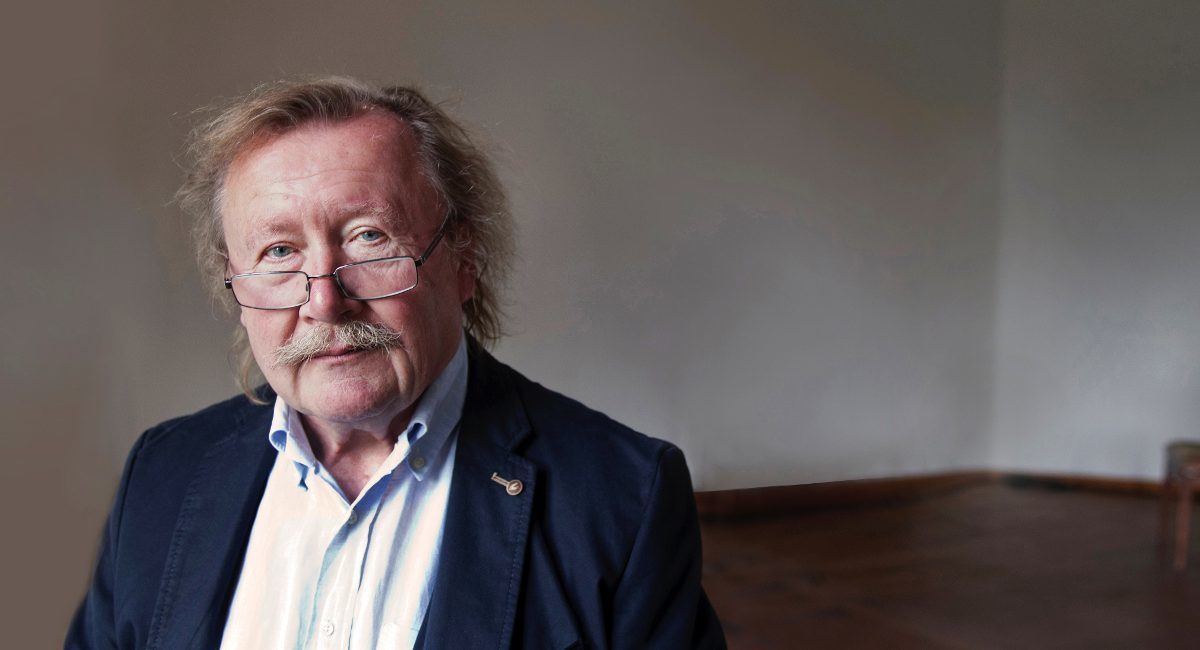In the New Yorker, Thomas Meaney has an extensive profile of “celebrity philosopher” and towering German intellectual Peter Sloterdijk. As Meaney writes, Sloterdijk has been dissecting the contradictions and shortcomings of liberal democracy for decades, predicting that it would lead to resurgence of right-wing populism. Here’s an excerpt from Meaney’s piece:
This profligacy makes Sloterdijk hard to pin down. He is known not for a single grand thesis but for a shrapnel-burst of impressionistic coinages—“anthropotechnics,” “negative gynecology,” “co-immunism”—that occasionally suggest the lurking presence of some larger system. Yet his prominence as a public intellectual comes from a career-long rebellion against the pieties of liberal democracy, which, now that liberal democracy is in crisis worldwide, seems prophetic. A signature theme of his work is the persistence of ancient urges in supposedly advanced societies. In 2006, he published a book arguing that the contemporary revolt against globalization can be seen as a misguided expression of “noble” sentiments, which, rather than being curbed, should be redirected in ways that left-liberals cannot imagine. He has described the Presidential race between Hillary Clinton and Donald Trump as a choice “between two helplessly gesticulating models of normality, one of which appeared to be delegitimatized, the other unproven,” and is unsurprised that so many people preferred the latter. Few philosophers are as fixated on the current moment or as gleefully ready to explain it.
Sloterdijk’s comfort with social rupture has made him a contentious figure in Germany, where stability, prosperity, and a robust welfare state are seen as central to the country’s postwar achievement. Many Germans define themselves by their moral rectitude, as exhibited by their reckoning with the Nazi past and, more recently, by the government’s decision to accept more refugees from the Syrian civil war than any other Western country. Sloterdijk is determined to disabuse his countrymen of their polite illusions. He calls Germany a “lethargocracy” and the welfare state a “fiscal kleptocracy.” He has decried Merkel’s attitude toward refugees, drawn on right-wing thinkers such as Martin Heidegger and Arnold Gehlen, and even speculated about genetic enhancement of the human race. As a result, some progressives refuse to utter his name in public. In 2016, the head of one centrist party denounced him as a stooge for the AfD, a new far-right party that won thirteen per cent of the vote in last year’s federal elections.
The rise of the German right has made life more complicated for Sloterdijk. Positions that, at another time, might have been forgiven as attempts to stir debate now appear dangerous. A decade ago, Sloterdijk predicted a nativist resurgence in Europe, a time when “we will look back nostalgically to the days when we considered a dashing populist showman like Jörg Haider”—the late Austrian far-right leader—“a menace.” Now Sloterdijk has found himself in the predicament of a thinker whose reality has caught up with his pronouncements.
Image of Peter Sloterdijk via petersloterdijk.net.
